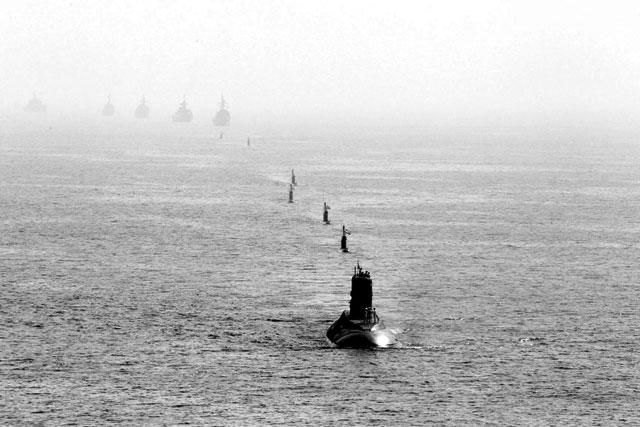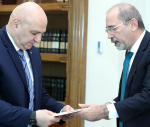You are here
Iran scores victories but faces limits — experts
By AFP - Dec 22,2016 - Last updated at Dec 22,2016
Tehran — Iran has scored a string of victories across the Middle East, and decades of isolation mean it is well-placed to weather the uncertainties of a Trump presidency.
But fears that it could dominate the region are overblown, experts say.
Having rarely commented on its role in the Syrian conflict, Tehran has been suddenly full of self-congratulation at the imminent defeat of rebel forces in Aleppo.
"The liberation of Aleppo... reinforces the political strength of Islamic Republic of Iran. The new American president must accept the reality that Iran is the leading power in the region," Yahya Safavi, top foreign policy adviser to Supreme Leader Ayatollah Ali Khamenei, told reporters last week.
The dominoes do indeed appear to be falling in Iran's favour in recent weeks.
Its support for Syrian President Bashar Assad in the form of battlefield advisers and volunteer fighters is paying off, and its mortal enemy — the Daesh terror group — could soon be ousted from Mosul in neighbouring Iraq.
In Lebanon, the protracted debate over who should be president ended in success for ex-general Michel Aoun, who is allied to the Iran-backed Shiite movement Hizbollah.
Iran has also seen billions of dollars in assets and oil sales unfrozen by last year's nuclear deal with world powers, and its allies in Yemen, the Shiite Houthi rebels, have held on despite a year of crippling bombardment by a Saudi-led coalition.
Living with Trump
And then there is the imminent arrival of Donald Trump.
The US president-elect has surrounded himself with fiercely anti-Iran advisers, but has also criticised Iran's main regional rival Saudi Arabia for its reliance on US support and “spreading fundamentalist Islam”.
After decades of isolation, Iran might be the best-placed to deal with the uncertainty Trump is about to inject into Middle Eastern affairs, said Adnan Tabatabai, Iran analyst and CEO of Germany-based think tank CARPO.
"For Iran, it's much easier not to rely on the US because they haven't been doing that for the past three decades, whereas it's a major change for Saudi Arabia and other regional rivals of Iran to stop counting on the US."
Even before Trump takes office, the Saudis have been facing a host of setbacks.
Their economy has been battered by low oil prices, the rebels they support in Syria are on the run, and their Western allies are increasingly disturbed by the brutal bombing campaign in Yemen.
For all this, analysts say fears that Iran could come to dominate the Middle East are unfounded.
"A lot of Iran's successes in the region are really to do with the failures of others. We shouldn't overestimate its capacities," said Tabatabai.
"Syria is important as a way of maintaining its access to Hizbollah in Lebanon, which acts as a defence force for Iran against Israeli influence in the region, but Iran's main priority is simply to secure its borders with Iraq and Afghanistan for the sake of its territorial integrity."
‘Preventing permanent war’
Foad Izadi, a conservative-leaning professor of world politics at Tehran University, said support for Assad’s bloody offensive was a necessary evil, and ultimately defensive in nature.
“If Syria falls, you’ll either get a pro-Israeli government there, or you get the Islamic State [Daesh], or you get Libya. Those are not good options for us,” he said.
“If Syria breaks up, then Iraq breaks up, and that’s right next door. This isn’t about dominating the region — it’s about preventing permanent war.”
Iran also faces clear limits to any attempt at expanding its power.
“For all the talk of Iran being in a much better position... it doesn’t change the fact that Iran is a Shiite power in a Sunni-majority region,” said Aram Nerguizian, a Middle East analyst with the Centre for Strategic and International Studies in Washington.
“Neither side wants all-out war. At some point they have to accept some degree of influence for the other side. The alternative is an indefinite ideological war between Sunnis and Shiites, and that’s just not sustainable.”
Nerguizian said the Saudis still had some major advantages, not least the billions of dollars in military hardware they have purchased from Western allies.
“...Gulf countries are far more integrated into the global economy than Iran and still have the support of key Western allies.”
Nor can Iran count on Russia, which has been a close ally in the Syrian conflict.
“Iran’s relationships with big powers like Russia and China are very fickle. Those countries have their own priorities. Syria is just one small part of the region. When it comes to things like energy, Russia is more than happy to partner with other countries in the Gulf,” said Nerguizian.
Related Articles
GENEVA — Switzerland said on Sunday it will represent the interests of Iran and Saudi Arabia in both countries after the rupture of diplomat
DUBAI — Iran said on Saturday it had many options to neutralise the reimposition of US sanctions on its oil exports, the semi-official
AMMAN — The top adviser to Iran's supreme leader said he expects the Syrian army to soon recapture rebel-held Idlib province, as well as eas
















